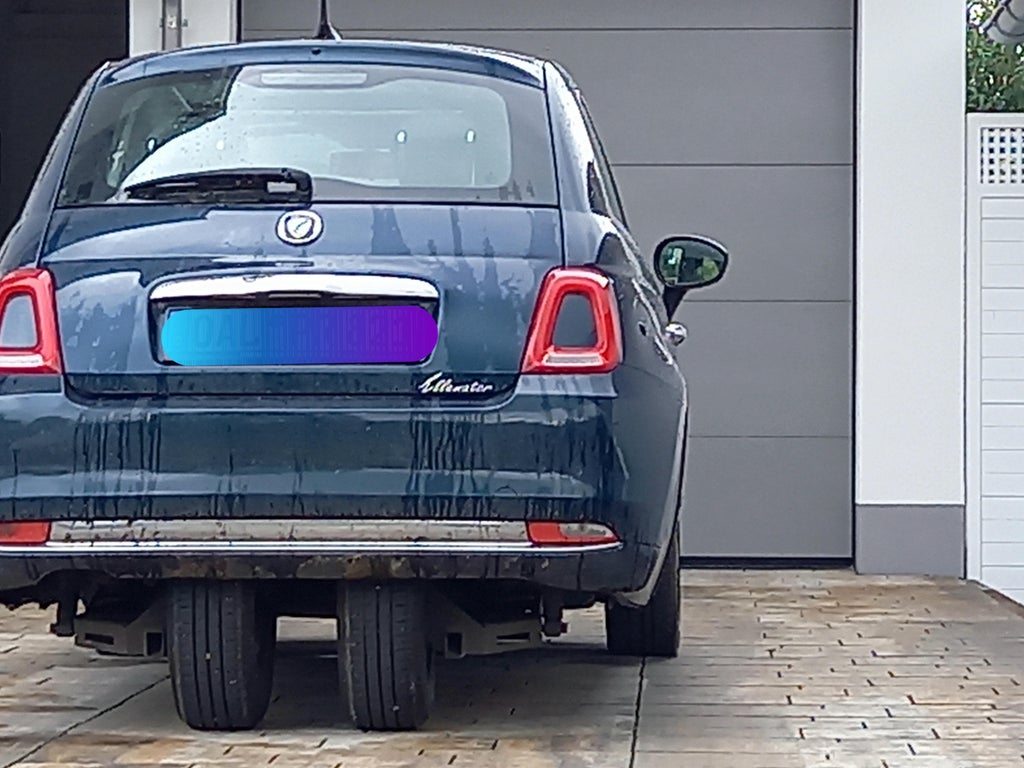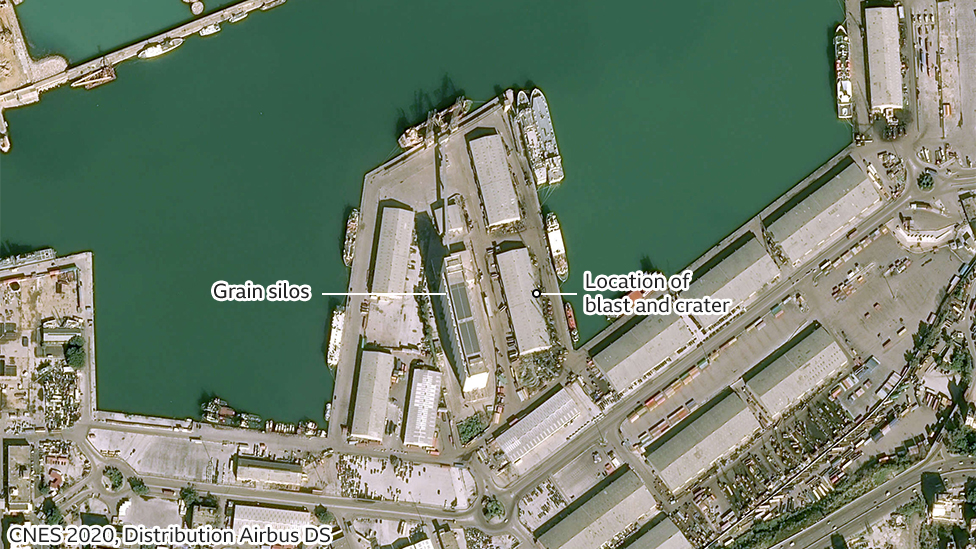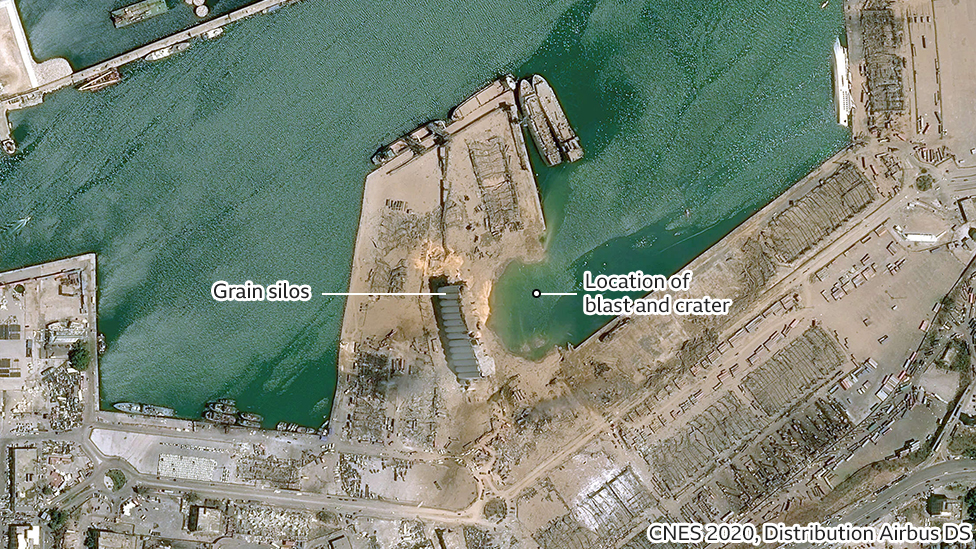Turkey's still screwing around, a very weird car, and Lebanon
Aug 10, 2020 | Read time: 6 min | 1141 words
Hello! New week, new Daily Something. Let’s dive right in.
In the last edition, I had written about the Turkish survey ship, the Oruc Reis, and how the Turkish government had held off sending it into Greece’s territorial waters. Well, they sent the ship in along with escort ships, and some sort of a nautical scuffle ensued between the two nations. Apparently a Hellenic (Greek) Navy frigate collided with a Turkish Navy frigate. In times like this, when you know nothing of what actually happened, each side’s going to claim a sort of victory - Greece says that it was a Turkish escort ship that messed up received heavy damage, while Turkey says that Greece was taught a good lesson.
Why do most leaders get aggressive with their neighbours? Generally speaking, they do it to shore up a rapidly eroding domestic power base. History tells us that if you (the beleaguered leader of a country) paint a third party as an aggressor, you can sort of get your own people to forget whatever differences they had (temporarily), and unite in your support, to fight against said third party. The great Mao Tse Tung put this to good use in the 1962 war with India. George Bush’s approval ratings went through the roof after 9/11 (although he wasn’t exactly beleaguered then, but you get what I’m saying). And between you and me, I think Xi Jinping’s having a lot of trouble within China, which is why he’s picking fights with all of his neighbours, trying to show them as aggressors. There’s a term for this effect, by the way - it’s called the rally ‘round the flag effect.
France, the eternal fighter, sent in a couple of jets to exercise with the Greeks, in a show of strength. She also sent a couple of ships to accompany the Greeks. We might see Italy do the same too. The only way to deal with Erdogan (who is willing to risk a war here), is to band together with other European nations, prepare to take casualties, and fight. Nothing less will do.
It’s clear that Erdogan is creating crises where none exist. But their effectiveness will only be seen in 2023, which is when the election for Turkey’s next President will be held. This particular conflict won’t last till then (all conflicts have a best-before date). Unless, Erdogan calls for early elections. Then this just might work.
I’m a car nut. Always have been, and always will be. So you can imagine how pained I must be when I see people do weird things with cars. Here’s the weird car thing of the month - the ellenator conversion. And no, this does not mean that you install a TV in the car that plays The Ellen Show all the time. It means you take a really small car, and bring the two rear wheels of the car close enough that the car becomes a three wheeler. And you also add a speed governor in the car so that it doesn’t go faster than 50 km/h. To cripple your perfectly nice car in this way costs $5000. Here’s what it looks like
 (Image from Reddit) What a joke.
(Image from Reddit) What a joke.
The point of this is that you give your 16 year old a vehicle that’s safer to drive than a Vespa (why not just give the kid a bicycle and make the kid work their quads and hamstrings?), because in Germany you can drive a three wheeler at the age of 16, without a full driving license. But there are better ways to spend the $5000! Just wait for 2 years and buy them a better car. Make ‘em ride cycles till then. Your kids will thank you, because they won’t have skinny legs, and they’ll have a nicer car. And then, if you wanna buy your kids a safe car, just get them a Volvo.
A horrific blast rang out at a harbour in Beirut, Lebanon, killing 158 people, and injuring 6,000. The damage it caused can be seen by the before and after photos, which have been taken from this article -
 Before
Before
 After
After
(images taken from here)
The crater caused by the blast was 43m deep, which is roughly equivalent to a 10-floor building. Some workers were allegedly welding a gate in Warehouse 12 at the port in Beirut, and behind that gate were 30-40 nylon bags of fireworks that had been confiscated by the authorities back in 2009. Warehouse 12 also stored 2,750 of highly, highly, highly explosive ammonium nitrate confiscated by the authorities in 2014. One thing led to another, and the fireworks exploded. Soon, they were joined by the ammonium nitrate. Mass destruction followed. Mass destruction followed.
It was common knowledge to the Lebanese government and judicial system that such a large quantity of explosives was placed in the harbour for so long, yet nothing was done about it. Beirut now looks at a rebuilding bill that’s anywhere between US$10 to US$15 billion. The Lebanese people are angry because their government didn’t do much to help them out post the blast, and the fact that the government bureaucracy is largely regarded as corrupt. The government’s situation was not helped by the fact that Lebanon is currently experiencing hyperinflation, wiping out the savings of most of the country’s population. Thus, the country’s Prime Minister resigned on the 11th of August.
This event could be the catalyst for Lebanon to change for the better. The people could come together, vote for a better government, and that government will have to take tough decisions to lift the country out of the hole it has dragged itself into. It’d be hard at first, but slowly, things could, and would change. Here’s the catch, though. People in Lebanon can’t really come together. They had a 15-year-long civil war because of this quality of theirs. Lebanese society is deeply fragmented by religion - they have Sunni Muslims, Shia Muslims, Christians (very many denominations), and Druze. It is because of this fragmentation that certain posts in the government are reserved for people from certain religions (which, as we have learnt from the British rule in India, almost always has the effect of emphasising the divisions between people). Thus, what we have on our hands is a properly messy, tangled situation. One can hope against hope and experience that someone transformative will come along to set things right (and such people do exist - Marshall Tito of Yugoslavia was one very good example), but they don’t come along often, you know. For now, I pray for Lebanon and its people. May you someday regain your past glory.
If you have some more free time, you can listen to an “architecture critic” rant about how interior design across the world is becoming standardised and boring because of Airbnb here.
Thank you for your time. Take care, and stay safe.